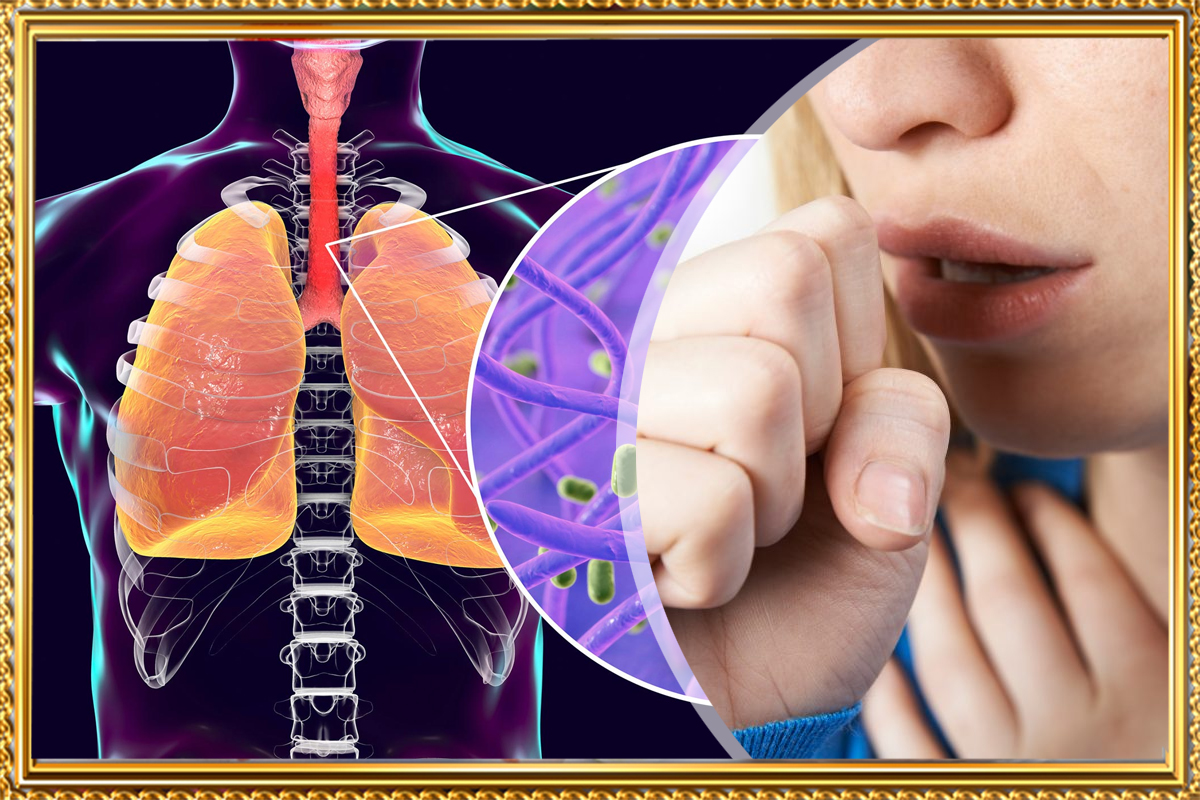- Home
- How to Identify and Treat Coughs in Babies and Adults / Whooping Cough
How to Identify and Treat Coughs in Babies and Adults / Whooping Cough

Coughing is a common issue for both babies and adults, but it can be a sign of various health conditions. In this blog post, we explore the differences between whooping cough in babies and adults, the causes of coughing in infants, and how to treat different types of coughs. Whether you're concerned about your baby's persistent cough or seeking effective treatment for a dry cough, this guide provides valuable insights and helpful tips for every stage of life.
Coughing is a natural reflex that helps clear the airways, but when persistent or severe, it can be concerning. Both babies and adults can experience a range of coughs, including dry coughs, whooping cough, and other respiratory issues. It's crucial to understand how these coughs differ between age groups and how to identify serious conditions like whooping cough in babies. In this article, we'll break down the symptoms, treatments, and causes of coughing in both babies and adults, with a focus on providing you with practical advice on when to seek medical attention.
Whooping Cough in Babies:
Whooping Cough in Babies vs. Adults: Whooping Cough in Adults:
Causes of Coughing in Babies:
Is Coughing Normal for Babies While Sleeping?
Dry Cough in Adults: Causes and Treatment
What is the risk of a baby contracting whooping cough?
Treatment for Coughing in Babies:
Treatment for Whooping Cough in Adults:
FAQs
Positive Aspects of Addressing Coughs in Babies and Adults:
Negative Aspects
CONCLUSION
Whooping Cough in Babies:
In infants, whooping cough presents differently than in adults and older children. Babies under 6 months old are particularly vulnerable to complications such as pneumonia or even death. However, babies may not always make this sound. Instead, they may experience long periods of coughing followed by difficulty breathing or even turning blue due to a lack of oxygen. Symptoms of Whooping Cough in Babies:
- Severe coughing fits followed by gasping or choking.
- Vomiting after coughing.
- Labored breathing or blue skin during coughing episodes.
- Excessive fatigue and difficulty eating or drinking due to coughing.

Whooping Cough in Babies vs. Adults: Whooping Cough in Adults:
In adults, whooping cough can often present as a persistent dry cough. The "whoop" sound is usually absent, making it harder to diagnose. Symptoms of Whooping Cough in Adults:
- Persistent dry cough lasting for weeks.
- Mild fever and fatigue.
- Coughing fits that make breathing difficult (but no whooping sound).
- Runny nose and mild cold symptoms.
- Note: Adults are less likely to experience severe complications, but the condition can still be uncomfortable and contagious.
Causes of Coughing in Babies:
- Viral infections like colds or flu.
- Bacterial infections, including whooping cough.
- Allergies or irritants in the environment (e.g., dust, smoke).
- Teething, which can cause slight coughing or gagging.
Is Coughing Normal for Babies While Sleeping?
Yes, coughing during sleep can be common for babies. Often, this is due to post-nasal drip or mild respiratory infections. Babies are also more likely to cough if they are lying flat because mucus tends to collect in the throat. If the coughing is persistent and accompanied by other symptoms like fever, difficulty breathing, or a change in the baby's color, it may indicate a more serious issue such as whooping cough or bronchiolitis.
Dry Cough in Adults: Causes and Treatment
A dry cough in adults is a common complaint and can result from a variety of factors:
- Common Causes of Dry Cough in Adults: • Viral infections (cold, flu, or COVID-19). • Irritation from allergies (dust, pet dander, pollen).
- Acid reflux (GERD), where stomach acid irritates the throat.
- Treatment for Dry Cough in Adults: • Stay hydrated by drinking plenty of water. • Honey and ginger tea to soothe the throat.
- Over-the-counter medications like cough suppressants or throat lozenges.
- Avoid irritants such as smoke, strong perfumes, or allergens.
What is the risk of a baby contracting whooping cough?
The likelihood of contracting whooping cough can be reduced through vaccination. However, if the baby is not vaccinated or has not yet received the full series of vaccinations, they are more vulnerable. It’s crucial to follow the immunization schedule to help protect infants from serious infections like whooping cough.
Treatment for Coughing in Babies:
When treating a baby's cough, it's important to be cautious, as their small bodies are more sensitive to medications and treatments. Tips to Manage a Baby's Cough:
- Saline drops or spray to relieve nasal congestion.
- Keep baby hydrated with breast milk or formula.
- Gentle patting or back rubs to help clear mucus. Always consult a pediatrician before using over-the-counter medications or remedies.
Treatment for Whooping Cough in Adults:
If left untreated, whooping cough can last for several weeks in adults, sometimes up to 10 weeks. The infection is most contagious during the first 2 weeks. Treatment for Adults:
- Cough suppressants for temporary relief.
- Supportive care, such as staying hydrated and resting. It’s essential to seek medical attention if you suspect you have whooping cough, especially if you're around vulnerable populations like babies or elderly individuals.
FAQs
- When should I be concerned about my baby's cough? If your baby's cough is persistent, causing difficulty breathing, or accompanied by fever, wheezing, or turning blue, it's important to seek immediate medical attention.
- How can I tell if my baby has whooping cough? The hallmark signs of whooping cough in babies are severe coughing fits, difficulty breathing, and exhaustion. If you notice these symptoms, contact a pediatrician immediately.
- Is a dry cough in adults serious? A dry cough in adults is typically not serious unless it is persistent, accompanied by other symptoms like chest pain, difficulty breathing, or a fever. If these symptoms are present, it’s important to see a doctor.}
- How can I treat a baby's cough naturally? You can use a humidifier, saline drops, and ensure the baby is hydrated. Always consult with a pediatrician for any treatments.
Positive Aspects of Addressing Coughs in Babies and Adults:
- Early diagnosis and treatment can prevent complications.
- Understanding the causes of coughs can help in choosing the right treatment.
- Vaccination and preventative measures significantly reduce the risk of whooping cough in infants.
Negative Aspects
- Persistent coughing in both babies and adults can lead to fatigue, difficulty sleeping, and a reduced quality of life.
- Babies are at higher risk of complications from severe respiratory infections, such as whooping cough.
Conclusion

Coughing is a common issue for both babies and adults, but understanding the underlying causes and seeking timely medical attention is key to ensuring the health and well-being of both. While a dry cough in adults may often be due to minor causes like allergies or viral infections, coughing in babies—especially when it involves severe coughing fits or difficulty breathing—requires careful monitoring. If you suspect your baby has whooping cough or if you're an adult with persistent symptoms, it's always best to consult a healthcare professional for a proper diagnosis and treatment plan.
















Post a comment